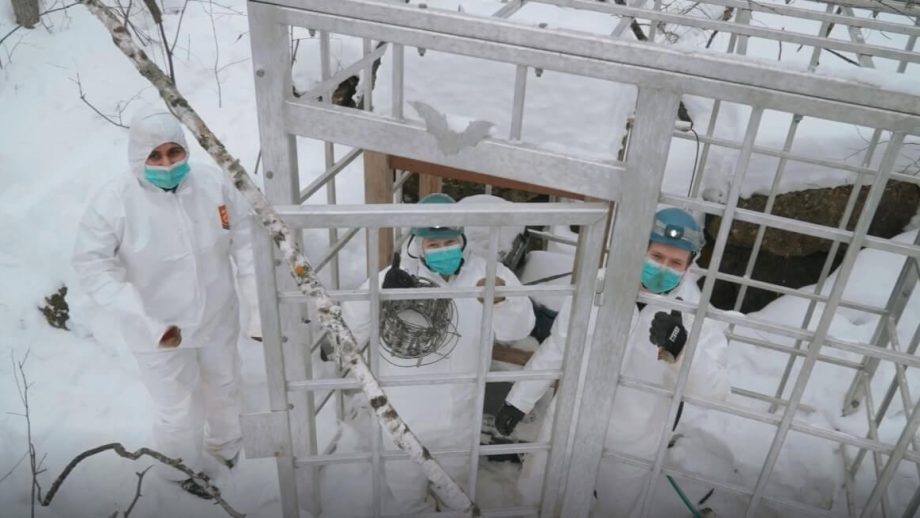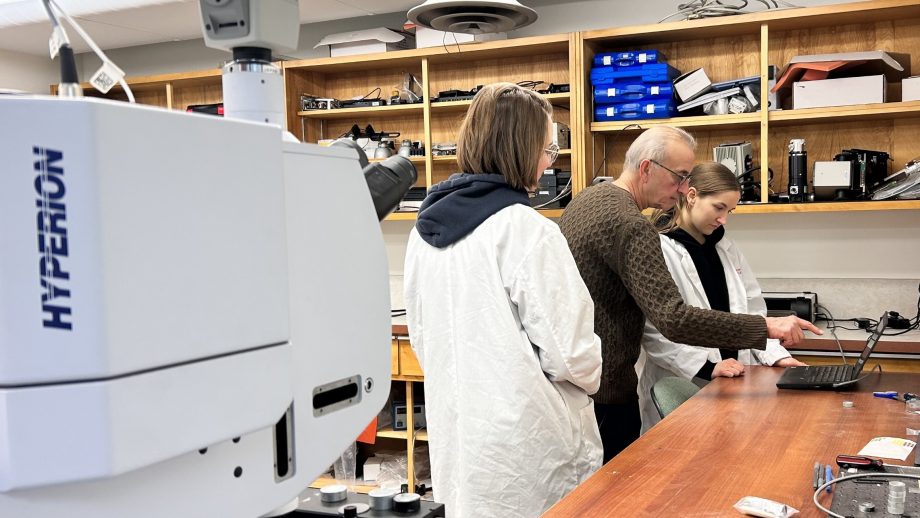An experienced historian of Imperial Russia and the Soviet Union, Aileen Friesen has long maintained a research interest in the experience of Mennonite history within the region and their migration to Canada. And thanks to recent funding, Friesen, an associate professor of History, co-director of the Centre for Transnational Mennonite Studies at The University of Winnipeg, and executive director of the Plett Foundation, will begin to explore a sizeable gap in the history of that migration.
In June, Friesen was one of several UWinnipeg researchers to receive an Insight Grant from the Social Sciences and Humanities Research Council (SSHRC) as the Principal Investigator on a proposed research project. Her project, for which she received nearly $150,000 in SSHRC funding, is titled Through a Gendered Red Gate: Mennonites and Mass Migration from the Soviet Union. It will seek to analyze how gender influenced the experience of Mennonites during the early-Soviet era and the Mennonite experience of migration to Canada.
Being able to compare and contrast how people of different genders and generations experienced, interpreted, or remembered similar events opens the possibility of understanding this period in new ways.
Aileen Friesen
Friesen explained how often this history, which included World War I, a revolution, civil war, and famine, is told from a male perspective. As such, the experiences of families and specifically of women have invariably fallen by the wayside, particularly the stories of mothers coping with feeding, protecting, and moving their families.
“What does that look like? What is that experience like?” Friesen said. “Those are the types of stories that haven’t been told, so when you start to do a gendered perspective, then we start to be able to see these traditional narratives in new ways.”
Receiving SSHRC funding allows Friesen to utilize archival resources from Ukraine, Russia, Canada and the United States. These sources offer different perspectives on the practical, bureaucratic, medical, and emotional elements of migration during 1920s. It’s also Friesen’s hope the funding will allow her to dive deep into the role of the Canadian Pacific Railway in providing support for the migration of Mennonites from the newly formed Soviet Union, a story that “hasn’t really been told.”
Relevant Research
Among Friesen’s primary – and favoured – sources are diaries, memoirs, and oral interviews, which offer a glimpse into the lives of ordinary people dealing with extraordinary upheaval. As Friesen noted, Mennonites preserved their experiences during these tumultuous years, offering intimate portraits of individuals, families, and communities making high-stakes decisions under difficult conditions.
“While these sources offer a Mennonite perspective, they also reveal a lot about social conditions, interethnic relations, and the effect on families of living within the disintegrating landscape of south Ukraine,” she said. “Being able to compare and contrast how people of different genders and generations experienced, interpreted, or remembered similar events opens the possibility of understanding this period in new ways.”
Friesen, whose previous book focused on the role of Russian Orthodox settlers in the colonization of Siberia, noted this research is particularly relevant given the current Russian invasion of Ukraine and the associated migration of Ukrainians to Canada.
She explained that while present-day political conditions are starkly different from 100 years ago, Russia’s occupation of parts of south Ukraine makes it difficult not to draw comparisons. As she described: “When you hear about snipers on the roofs of former Mennonite buildings, of people disappearing, of towns being bombed, of people feeling unsafe and forced to leave for new countries where they don’t speak the language, it’s difficult not to think about the experiences of the people that I am researching.” One of the regions she is currently studying, the former Mennonite colony of Molotschna, is currently under Russian occupation.
“Current day events have added a heightened understanding of the sources that I’m reading, Friesen said. “As I watch what is happening to my colleagues and friends in Ukraine, I feel like I understand my source material in a different way than I would have had I started this project a year ago. Sources that I might have read with a level of detachment have taken on new meaning.”





